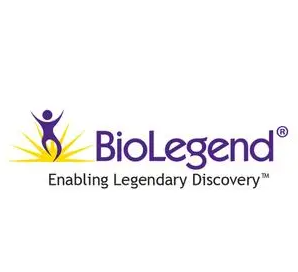Alexa Fluor® 700 anti-human CD69 Antibody
- 产品名称:
- Alexa Fluor® 700 anti-human CD69 Antibody
- 产品类别:
- 抗体
- 产品编号:
- 310921
- 产品应用:
- 310921
- Verified Reactivity
- Human
- Reported Reactivity
- African Green, Baboon, Chimpanzee, Cynomolgus, Pigtailed Macaque, Rhesus
- Antibody Type
- Monoclonal
- Host Species
- Mouse
- Formulation
- Phosphate-buffered solution, pH 7.2, containing 0.09% sodium azide.
- Preparation
- The antibody was purified by affinity chromatography and conjugated with Alexa Fluor? 700 under optimal conditions.
- Concentration
- 0.5 mg/ml
- Storage & Handling
- The antibody solution should be stored undiluted between 2°C and 8°C, and protected from prolonged exposure to light. Do not freeze.
- Application
-
FC - Quality tested
- Recommended Usage
Each lot of this antibody is quality control tested by immunofluorescent staining with flow cytometric analysis. The suggested use of this reagent is ≤ 0.5 ?g per 106 cells in 100 ?l volume or 100 ?l of whole blood. It is highly recommended that the reagent be titrated for optimal performance for each application.
* Alexa Fluor? 700 has a maximum emission of 719 nm when it is excited at 633nm / 635nm. Prior to using Alexa Fluor? 700 conjugate for flow cytometric analysis, please verify your flow cytometer's capability of exciting and detecting the fluorochrome.
Alexa Fluor? and Pacific Blue? are trademarks of Life Technologies Corporation.
View full statement regarding label licenses - Excitation Laser
- Red Laser (633 nm)
- Application Notes
Additional reported applications (for the relevant formats) include: immunohistochemical staining of acetone-fixed frozen tissue sections2, immunofluorescence microscopy3, and spatial biology (IBEX)8,9.
- Application References
(PubMed link indicates BioLegend citation) -
- Knapp WB, et al. 1989. Leucocyte Typing IV. Oxford University Press. New York.
- Sakkas LI, et al. 1998. Clin. and Diag. Lab. Immunol. 5:430. (IHC)
- Kim JR, et al. 2005. BMC Immunol. 6:3. (IF)
- Verjans GM, et al. 2007. P. Natl. Acad. Sci. USA 104:3496.
- Lu H, et al. 2009. Toxicol Sci. 112:363. (FC) PubMed
- Thakral D, et al. 2008. J. Immunol. 180:7431. (FC) PubMed
- Yoshino N, et al. 2000. Exp. Anim. (Tokyo) 49:97. (FC)
- Radtke AJ,?et al. 2020.?Proc Natl Acad Sci USA. 117:33455-33465. (SB)?PubMed
- Radtke AJ,?et al. 2022.?Nat Protoc. 17:378-401. (SB)?PubMed
- Product Citations
-
- Tan AT, et al. 2021. J Clin Invest. 131:. PubMed
- Havenith S, et al. 2014. Int Immunol. 26:183. PubMed
- Pedersen JG, et al. 2021. Front Microbiol. 12:763030. PubMed
- Kalimuddin S, et al. 2021. Med. 2(6):682-688.e4. PubMed
- Pattekar A, et al. 2021. Cellular and Molecular Gastroenterology and Hepatology. 11(5):1267-1289. PubMed
- Ries M, et al. 2013. J Leukoc Biol. 94:123. PubMed
- Hazenberg MD, et al. 2019. Blood Adv. 2.659722222. PubMed
- Lim JME, et al. 2022. Cell Rep Med. 3:100793. PubMed
- Chen ZY, et al. 2020. Front Microbiol. 1.778472222. PubMed
- Nguyen NT, et al. 2021. Nat Nanotechnol. 16:1424. PubMed
- Fierle JK, et al. 2021. Cell Reports Medicine. 2(8):100362. PubMed
- RRID
- AB_493774 (BioLegend Cat. No. 310921) AB_493775 (BioLegend Cat. No. 310922)
- Structure
- C-type lectin, type II glycoprotein, 28/32 kD
- Distribution
-
Activated T cells, B cells, NK cells, granulocytes, thymocytes, platelets, Langerhans cells
- Function
- Lymphocyte, monocyte, and platelet activation, NK cell killing
- Cell Type
- B cells, Granulocytes, Langerhans cells, NK cells, Platelets, T cells, Thymocytes, Tregs
- Biology Area
- Costimulatory Molecules, Immunology
- Molecular Family
- CD Molecules
- Antigen References
-
1. Schlossman S, et al. Eds. 1995. Leucocyte Typing V. Oxford University Press. New York.
2. Testi R, et al. 1994. Immunol. Today 15:479.
- Gene ID
- 969 View all products for this Gene ID
- UniProt
- View information about CD69 on UniProt.org
